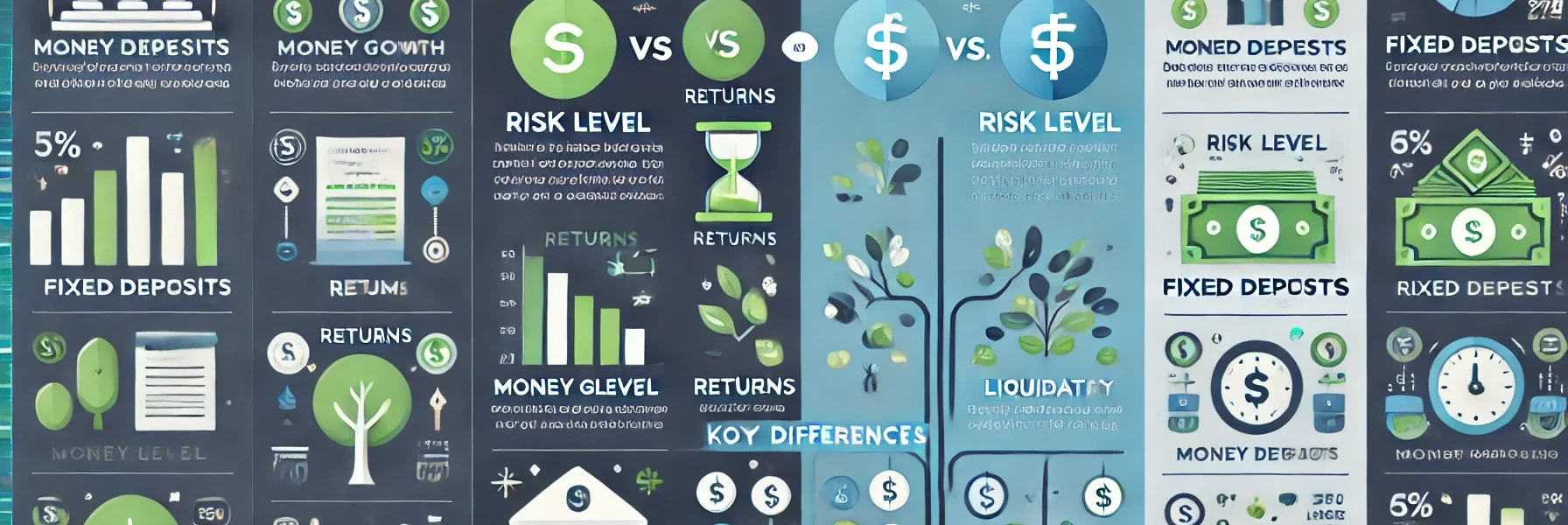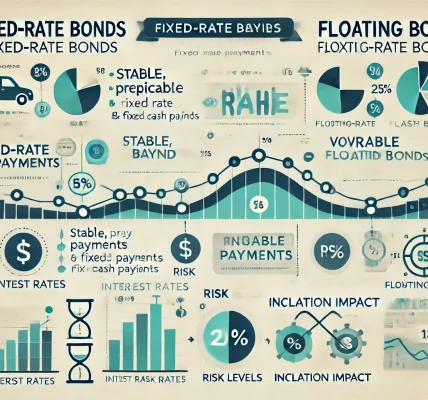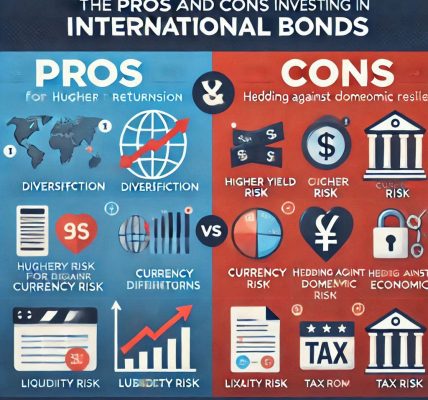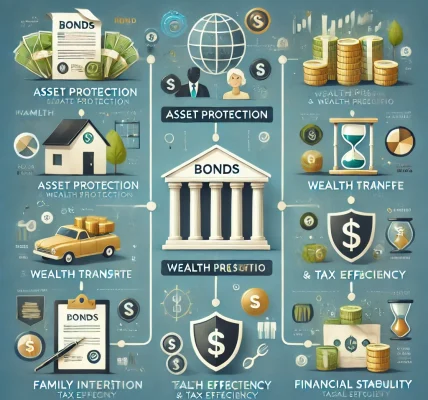When it comes to safe and reliable investment options, bonds and fixed deposits (FDs) are two popular choices. Both offer relatively low risk compared to stocks, making them attractive for conservative investors. However, in 2024, with fluctuating interest rates and changing market dynamics, it is crucial to evaluate which option aligns best with your financial goals.
In this comprehensive guide, we will break down the differences between bonds and fixed deposits, their pros and cons, and help you decide which is the better investment in 2024.
What Are Bonds?
Bonds are debt instruments issued by corporations, municipalities, or governments to raise capital. When you invest in bonds, you are essentially lending money to the issuer in exchange for periodic interest payments (coupon) and the return of the principal amount at maturity.
Types of Bonds:
- Government Bonds: Issued by national governments and considered the safest.
- Corporate Bonds: Issued by private companies; typically offer higher returns but carry more risk.
- Municipal Bonds: Issued by local government bodies; often tax-free.
- Zero-Coupon Bonds: Do not pay periodic interest but are sold at a discount and redeemed at face value.
What Are Fixed Deposits (FDs)?
Fixed deposits are financial products offered by banks and financial institutions where you deposit a lump sum for a fixed tenure and earn a predetermined interest rate. At maturity, you receive your principal plus accumulated interest.
Types of Fixed Deposits:
- Regular FD: Fixed tenure and interest rate.
- Tax-Saving FD: Offers tax benefits under Section 80C of the Income Tax Act.
- Senior Citizen FD: Higher interest rates for senior citizens.
- Flexi FD: Linked to a savings account for liquidity and better returns.
Key Differences Between Bonds and Fixed Deposits
| Feature | Bonds | Fixed Deposits |
|---|---|---|
| Issuer | Governments, Corporations | Banks, NBFCs |
| Interest (Returns) | Variable (fixed or floating) | Fixed and predetermined |
| Risk Level | Varies (low for government, higher for corporate) | Very low (insured up to ₹5 lakh in India) |
| Liquidity | Tradable in secondary markets | Limited liquidity (penalty on early withdrawal) |
| Taxation | Interest is taxable; capital gains may apply | Interest is taxable, but tax-saving FDs offer deductions |
| Tenure | Short to long-term (1-30 years) | Short to medium-term (7 days to 10 years) |
| Returns Potential | Higher for corporate and high-yield bonds | Lower, but guaranteed returns |
Pros and Cons of Bonds
Pros:
- Higher Return Potential: Corporate and high-yield bonds can offer better returns than FDs.
- Diversification: Bonds can diversify your investment portfolio.
- Regular Income: Periodic interest payments provide steady cash flow.
- Liquidity: Can be sold in secondary markets for early exit.
Cons:
- Market Risk: Bond prices fluctuate with interest rate changes.
- Default Risk: Corporate bonds carry a risk of issuer default.
- Tax Implications: Interest and capital gains are taxable.
Pros and Cons of Fixed Deposits
Pros:
- Safety: Bank FDs are insured up to ₹5 lakh by DICGC in India.
- Fixed Returns: Guaranteed interest makes FDs predictable.
- Simple and Accessible: Easy to open and manage through banks.
Cons:
- Lower Returns: Generally offer lower returns than bonds.
- Taxable Income: Interest is fully taxable.
- Limited Liquidity: Penalty on premature withdrawal.
Which Is a Better Investment in 2024?
Your choice between bonds and fixed deposits depends on several factors. Let’s break down the decision based on key considerations:
1. Return Expectations
- Higher Returns: If you seek higher returns and are willing to take moderate risk, corporate bonds or high-yield bonds may be more attractive.
- Stable Returns: For guaranteed and predictable income, fixed deposits are a safer bet.
2. Risk Tolerance
- Low Risk: Choose government bonds or fixed deposits if capital protection is your priority.
- Moderate Risk: Corporate bonds offer better returns but come with credit risk.
3. Investment Tenure
- Short-Term: Fixed deposits offer better short-term liquidity.
- Long-Term: Bonds, especially government bonds, provide better long-term returns with periodic income.
4. Tax Efficiency
- Tax-Saving Goal: Tax-saving FDs under Section 80C offer deductions up to ₹1.5 lakh.
- Capital Gains Management: Bonds provide opportunities to optimize capital gains taxation.
Ideal Investor Profiles
- For Conservative Investors: Fixed deposits provide safety and assured returns.
- For Balanced Investors: A mix of government bonds and FDs offers both security and moderate returns.
- For Aggressive Investors: Corporate bonds can deliver higher returns but require thorough research.
Conclusion: Making the Right Choice
Both bonds and fixed deposits have unique benefits and risks. Fixed deposits are ideal for risk-averse investors seeking guaranteed returns, while bonds offer higher return potential with varying levels of risk and liquidity.
In 2024, assess your financial goals, risk tolerance, and tax situation to make an informed decision. For many investors, a diversified approach combining both bonds and FDs can provide the best of both worlds—safety and superior returns.
Always consult a financial advisor before making investment decisions to ensure alignment with your financial objectives and risk appetite.
Would you like further insights or assistance with your investment planning? Let us know!”




